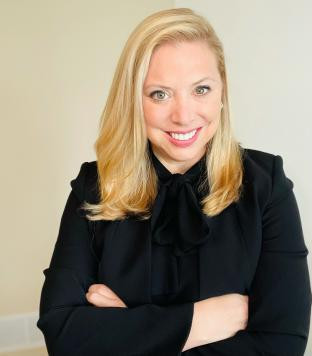
Guest Authored by Lisa Meeks, PhD, MA
July is Disability Pride Month, an opportunity to celebrate the
historic signing of the Americans with Disabilities Act (ADA) into law; yet, 33 years later, we
still have a long way to go. This
month serves as an opportunity to raise awareness, challenge stigmas, and
promote disability inclusion. For me, it is a time to reflect on the tumultuous
history of disability and medicine and to imagine the path to a disability-inclusive
healthcare workforce and more equitable care for patients with disabilities.

Disability and Healthcare Professions
Worldwide, over 1 billion people have disabilities making disability the largest minoritized identity. In the US, about 27% of adults identify as disabled. For this group, which cuts across every other minoritized identity, healthcare is often inaccessible, inhospitable, and may be traumatizing. Understandably, trust in the healthcare system continues to erode. Research from a 2022 study suggests that doctors do not want to treat people with disabilities and often engage in covert discriminatory acts to avoid adding disabled patients to their practice. Indeed, the study’s senior author, Dr. Lisa Iezzoni, says that “physicians talked about the fact that they didn’t feel equipped to be able to care for these patients who were coming in,” further underscoring the need and potential for disabled healthcare providers to inform care for patients with disabilities and to combat ableism in medicine.
In recent years, the health professions community has made significant strides towards inclusivity and recognizing the rights of all marginalized groups, including those with disabilities; however, despite these efforts, the number of students, residents, and physicians with disabilities remains surprisingly low, and the number of nursing students and practicing nurses with disabilities is unknown. These individuals face significant barriers in our training environments, including bias and stigma, lack of clear policies about how to disclose disability, and mistreatment, which further hinders disclosure of disability and precludes individuals from receiving necessary support. When barriers remain in place, students, nurses, and physicians cannot fully optimize their abilities, leading to differences in academic performance and well-being.
Addressing Barriers and Belief Systems
We must work hard to create equity in health professions education. As leaders in the academic and nonprofit worlds, we all have a responsibility to support the equitable and meaningful participation of all people in our healthcare system. The Macy Foundation is elevating the conversation and addressing ableism in a webinar series poignantly titled “Barriers and Belief Systems.” This series centers on disabled doctors, nurses, and their student colleagues and elevates their stories. Last year during Disability Pride Month, this series focused on medical education, challenging educators to actively reconsider their beliefs and review their systems and structures, including policies, that preclude highly qualified applicants with disabilities from entering the medical profession. The series was well-received, and this year the Macy Foundation partnered with the Association of American Colleges of Nursing (AACN), the Docs With Disabilities Initiative, and the Johns Hopkins University Disability Health Research Center to launch Barriers and Belief Systems in nursing education, which broke Macy Foundation records for the number of participants registered for a single webinar.
How can institutions improve access for disabled learners?
Dr. Neera Jain suggests that legibility—meaning that “how disability is understood conditions how it is recognized, and whether it will be regarded as a legitimate way of being internally, interpersonally, and institutionally”—affects disability disclosure, while the knowledge of disability and the assessment of possibilities also impact the experience that students have accessing accommodations, and whether the student receives meaningful inclusion. Additional research supports this idea demonstrating that the visibility, confidentiality, and specialization of the institution’s official disability officer impacts whether students feel safe disclosing and requesting accommodation.
So, what can you do to affect change in your institution? First, educate yourself and work to actively combat ableism. Second, read and follow the considerations offered by the Association of American Medical Colleges (AAMC), include disability competencies in your curriculum, and engage with resources and organizations that provide education and training on disability inclusion and accommodation.
If we collectively commit to educating ourselves about disability inclusion and the enormous benefits for our health professions, listen to our students with disabilities, examine our policies looking for harmful or ableist implicit and explicit messages and amend them as necessary, we can affect change. Recognizing the unique experiences, talents, and strengths of individuals with disabilities enriches healthcare. Together, we can create a healthcare workforce where everyone thrives—both healthcare professionals and their patients.
Recordings of the Barriers and Belief Systems series can be found on the Macy Foundation’s website.